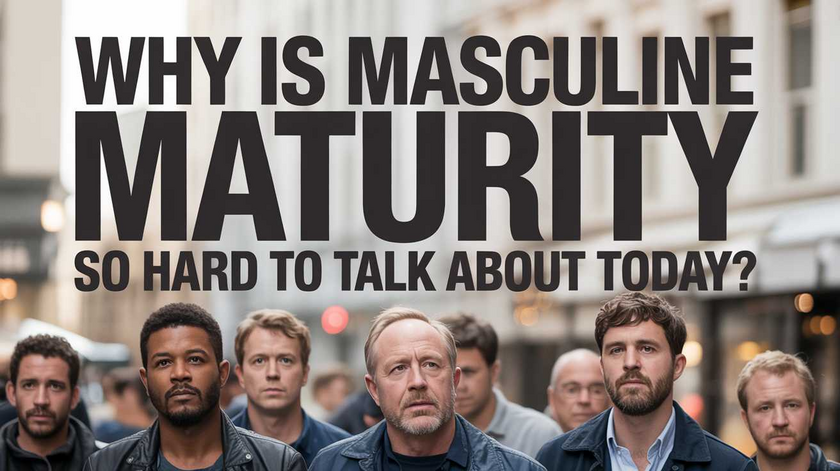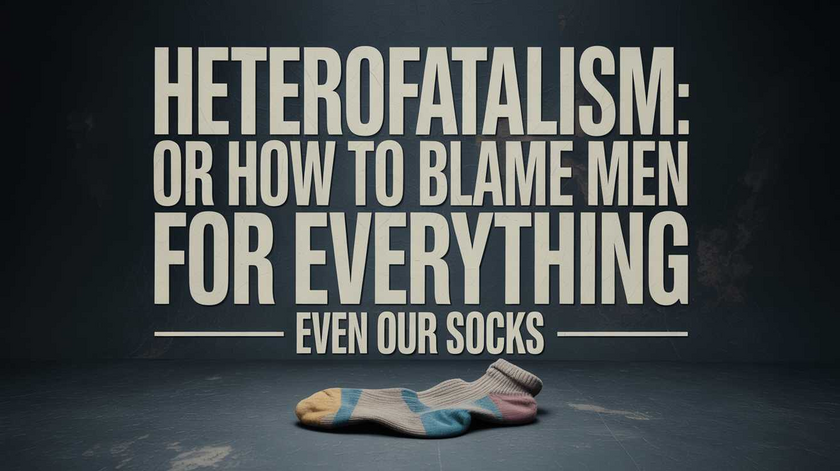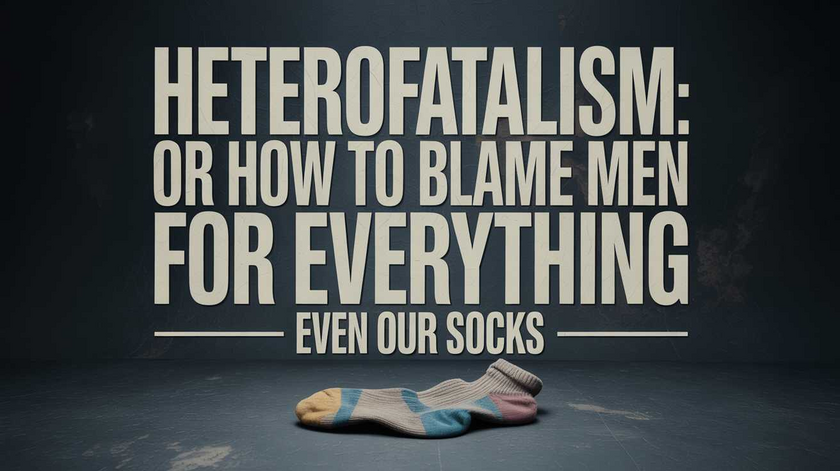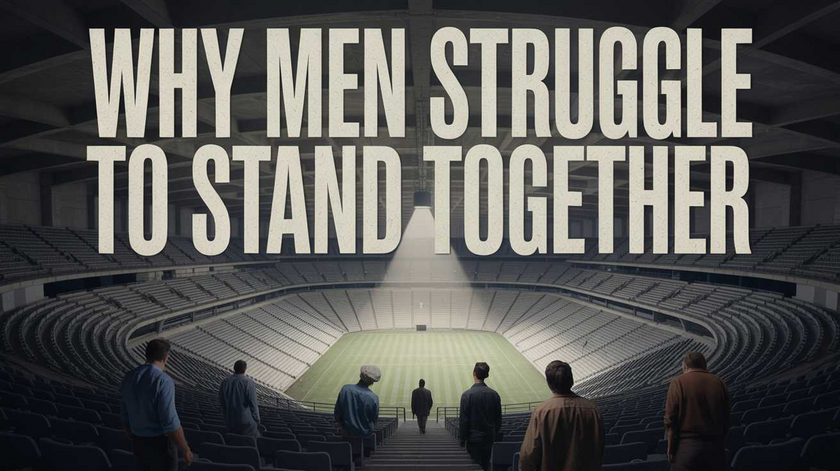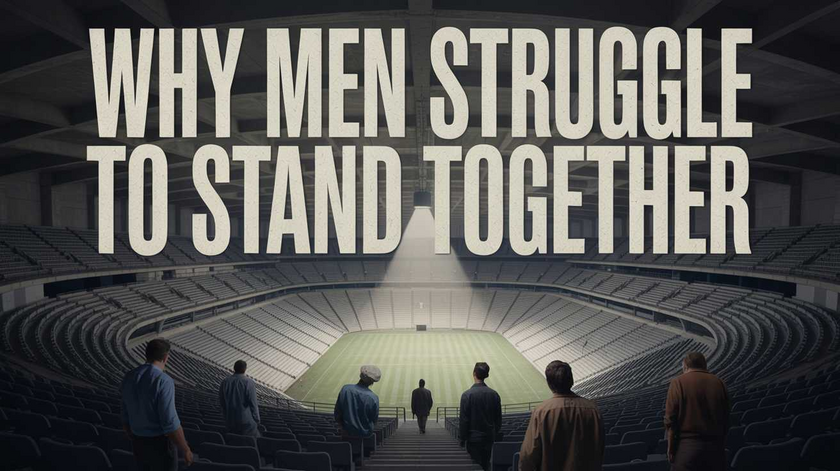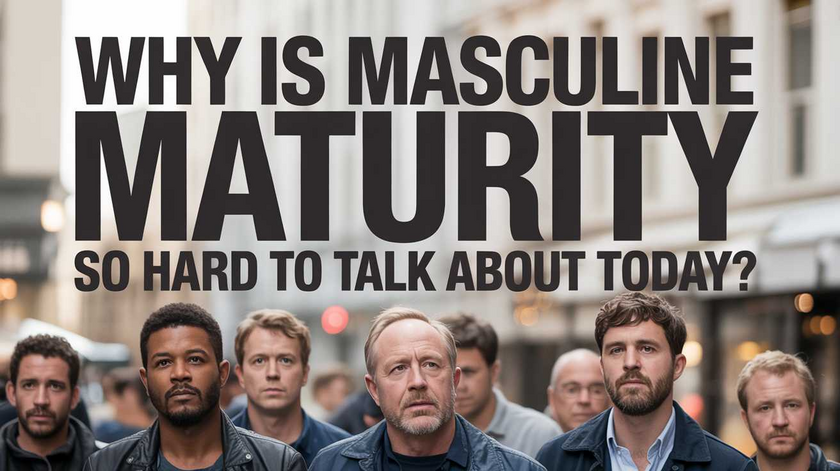
Why Is Masculine Maturity So Hard to Talk About Today?
In the early 1990s, you could walk into a bookstore and find entire tables devoted to the male journey. Robert Bly’s Iron John was a bestseller. Sam Keen, James Hillman, Michael Meade, Robert Moore, Richard Rohr — all were offering soulful, intelligent takes on what it meant to be a man. It wasn’t about domination. It wasn’t about “reclaiming power.” It was about emotional honesty, growth, and purpose. In other words: maturity.
Fast forward to today, and you’ll find… almost nothing. Talk about masculinity now and the conversation quickly turns to toxicity, privilege, or fragile male egos. Where once there was myth, poetry, and psychology, we now get slogans and shame.
Why did this happen? Why is masculine maturity such a neglected subject?
Here are a few answers — and a couple of stories that may help explain why the silence around men runs so deep.
1. The Cultural Suspicion Toward Masculinity
Over the last fifty years, masculinity has been treated less as a stage of growth and more as a problem to be managed. Many institutions — academic, psychological, media-driven — have become allergic to the idea that men might have unique struggles, let alone a need for support. Masculinity is often reduced to a stereotype: aggressive, emotionally stunted, dangerous. So it’s not surprising that serious explorations of mature masculinity are viewed with skepticism — or simply ignored.
I experienced this firsthand when I joined the American Psychological Association’s Division 51, the group supposedly devoted to studying men and masculinities. Initially, I was welcomed. A few of the men there had read Swallowed by a Snake, my first book, and treated me with respect.
But over time, it became clear this wasn’t a group focused on men. It was a feminist-aligned group focused on monitoring men. That would have been fine if it had also been balanced — but it wasn’t.
One moment still sticks with me. I asked the group — these were top psychologists, many regularly quoted in national media — if they had ever heard of Robert Moore, the Jungian analyst who literally co-wrote King, Warrior, Magician, Lover, one of the most influential models of the mature masculine ever created.
Not one of them had heard of him.
These were the gatekeepers of psychological discourse around men, and they had never encountered one of the most insightful thinkers on the subject. That’s when I realized: this wasn’t a field seeking to understand men — it was a field managing a narrative about men.
They later kicked me out of the group.
2. The Disappearance of Mentorship and Male Space
The maturation of men has always required something very simple but essential: older men guiding younger men. That doesn’t mean domination or militaristic hierarchy — it means real mentorship. Time together. Shared wisdom. A hand on the shoulder.
But today, male-only spaces are either disappearing or treated with suspicion. Most institutions that once created these bonds — churches, trades, father-son traditions — are either crumbling or feminized. Men don’t know where to go, and the culture doesn’t really care that they’re drifting.
3. The Mythopoetic Movement Was Shamed Out of Existence
In the 1990s, the Mythopoetic Men’s Movement made a serious attempt to give men a space to grow, reflect, and feel. Men gathered, sometimes in the woods. They drummed. They told stories. They cried. They got honest.
They did exactly what the culture — and women — had been begging men to do for decades: engage emotionally, get their priorities straight, and connect with other men in a non-competitive, supportive environment.
So what happened?
The media mocked them. Relentlessly. Headlines rolled out: “Men Go Into Woods to Beat Drums and Take Off Their Clothes.” Late-night shows made jokes. These men weren’t harming anyone. They were healing. But that seemed to frighten people — especially the idea that men were coming together in a community that wasn’t controlled or mediated by women.
Instead of being praised, they were ridiculed and dismissed. The movement, shamed out of existence, faded.
4. No Urgency for Male Development
When girls or women face emotional hardship, society responds — with programs, policies, and public empathy. But when boys or men face disconnection, despair, or aimlessness, the response is often: “Toughen up.” Or worse: silence.
There’s a deep-rooted empathy gap when it comes to men. The assumption seems to be that men don’t need emotional depth, spiritual development, or mentorship. They just need to behave. This assumption is not only wrong — it’s dangerous. Because without maturity, all you get is drift, anger, or collapse.
5. Fear of Being Labeled
Today, if you talk too much about men’s needs, you risk being labeled “anti-feminist” or “reactionary.” Even well-meaning men tiptoe around the topic for fear of being misunderstood. As a result, the public conversation is cautious, shallow, or entirely missing.
And yet, quietly, the hunger remains.
Men are looking for guidance — not from social media influencers or political ideologues, but from grounded voices who actually understand what male development looks like from the inside.
So Where Does This Leave Us?
We’re in a strange place. The world criticizes men constantly, but offers no real path to growth. It tells men to “do better,” but doesn’t explain how — or even what “better” means, other than being more like women.
Masculine maturity isn't about dominance, nor is it about submission. It's about becoming whole — integrating strength with compassion, solitude with connection, responsibility with joy.
That journey still matters. In fact, it may matter now more than ever.
And those of us who have walked part of that road — and seen its value — need to keep the conversation alive.
Even when it's inconvenient.
Even when it's mocked.
Even when it's lonely.
Because the silence around men has never been a sign of health. It’s a sign that something sacred has been neglected.
And it’s time we returned to it.



